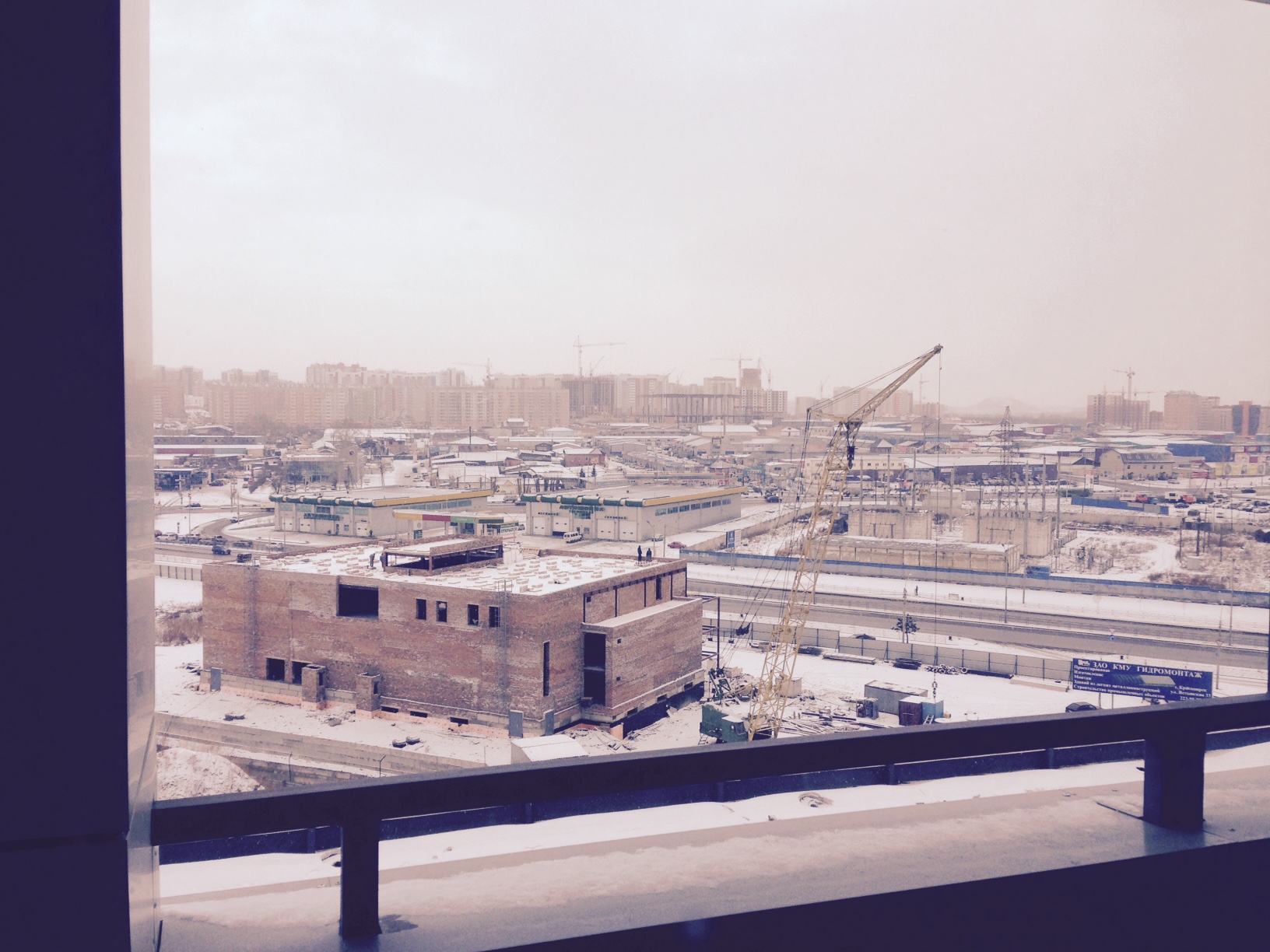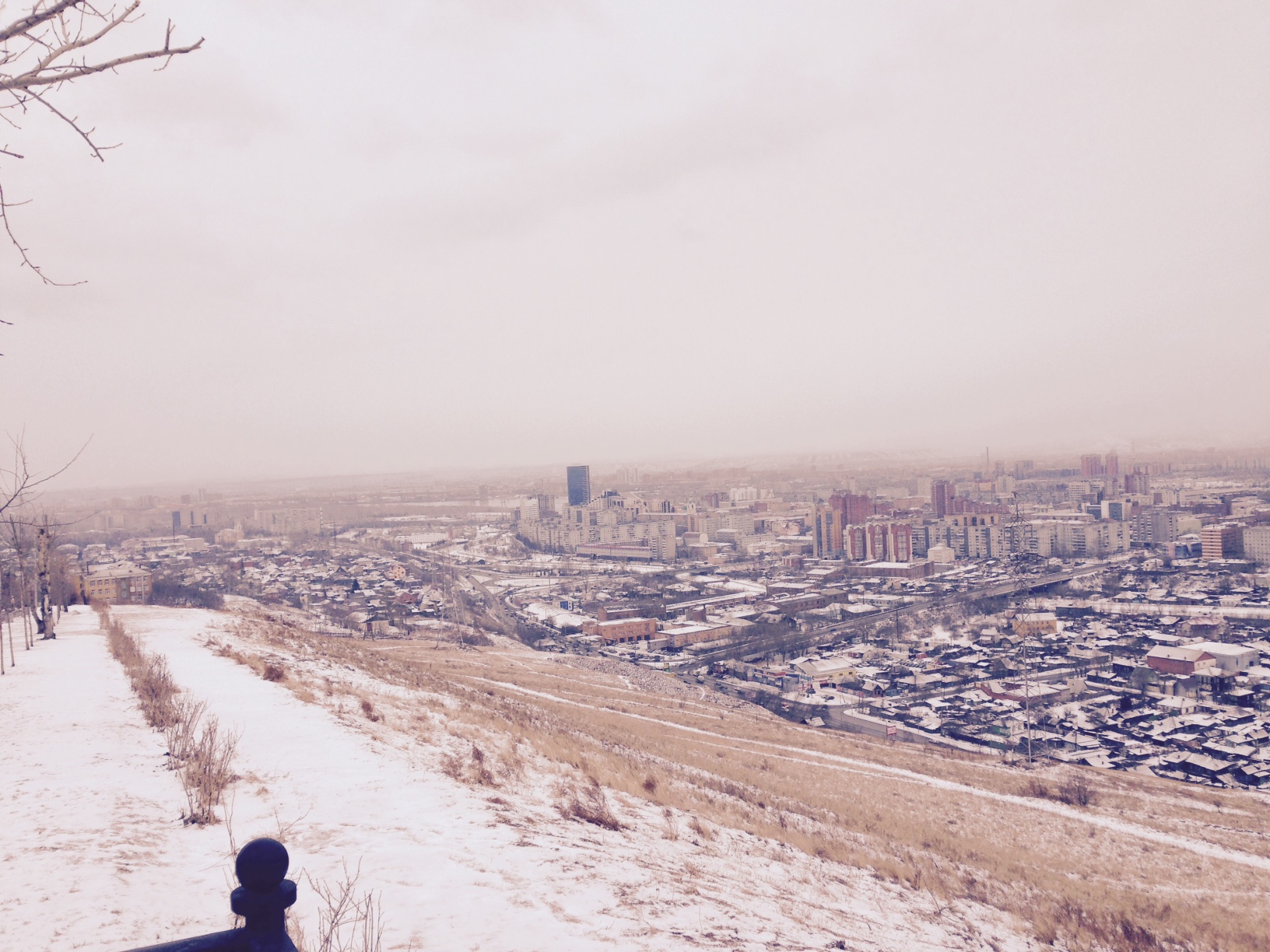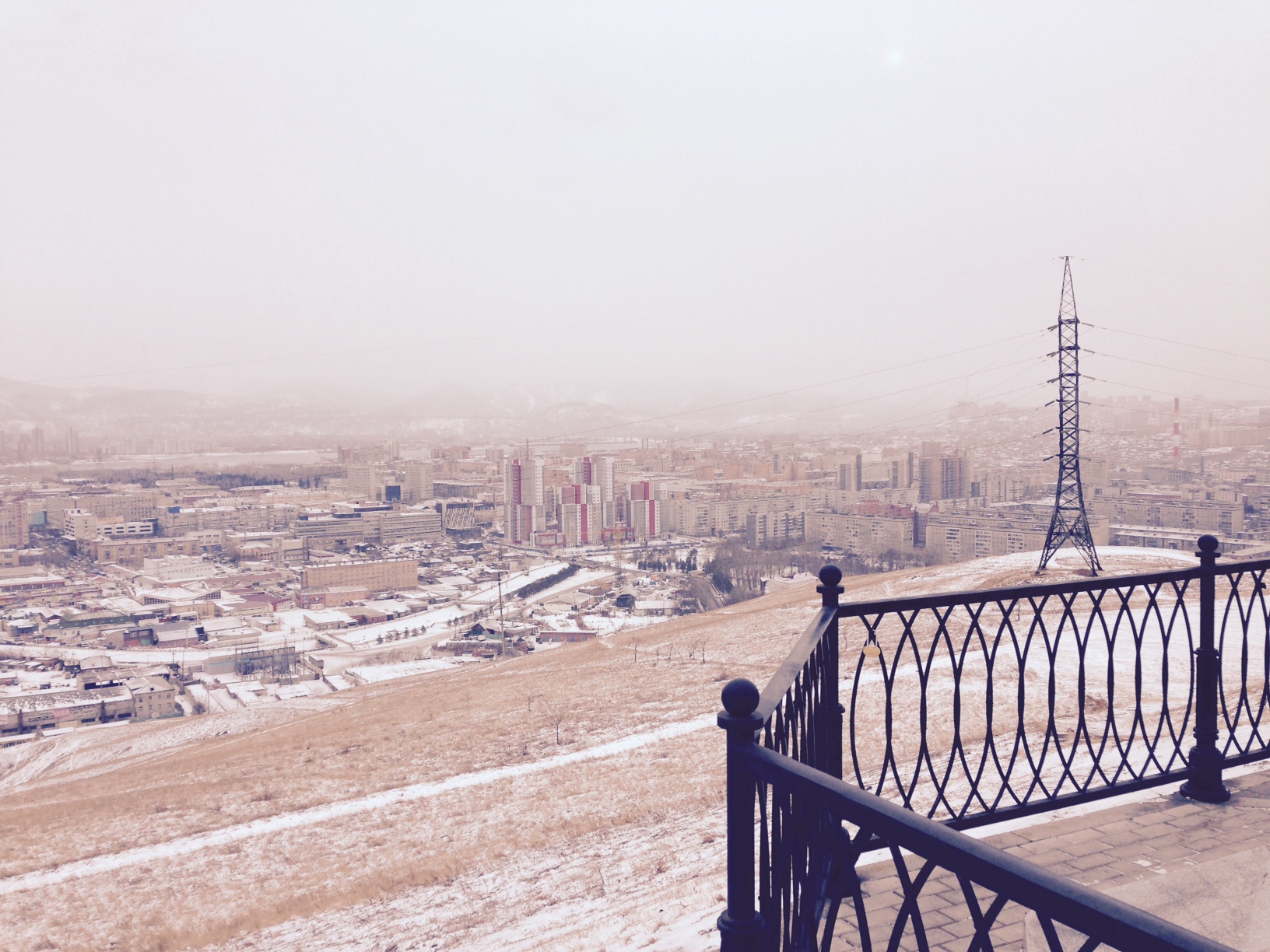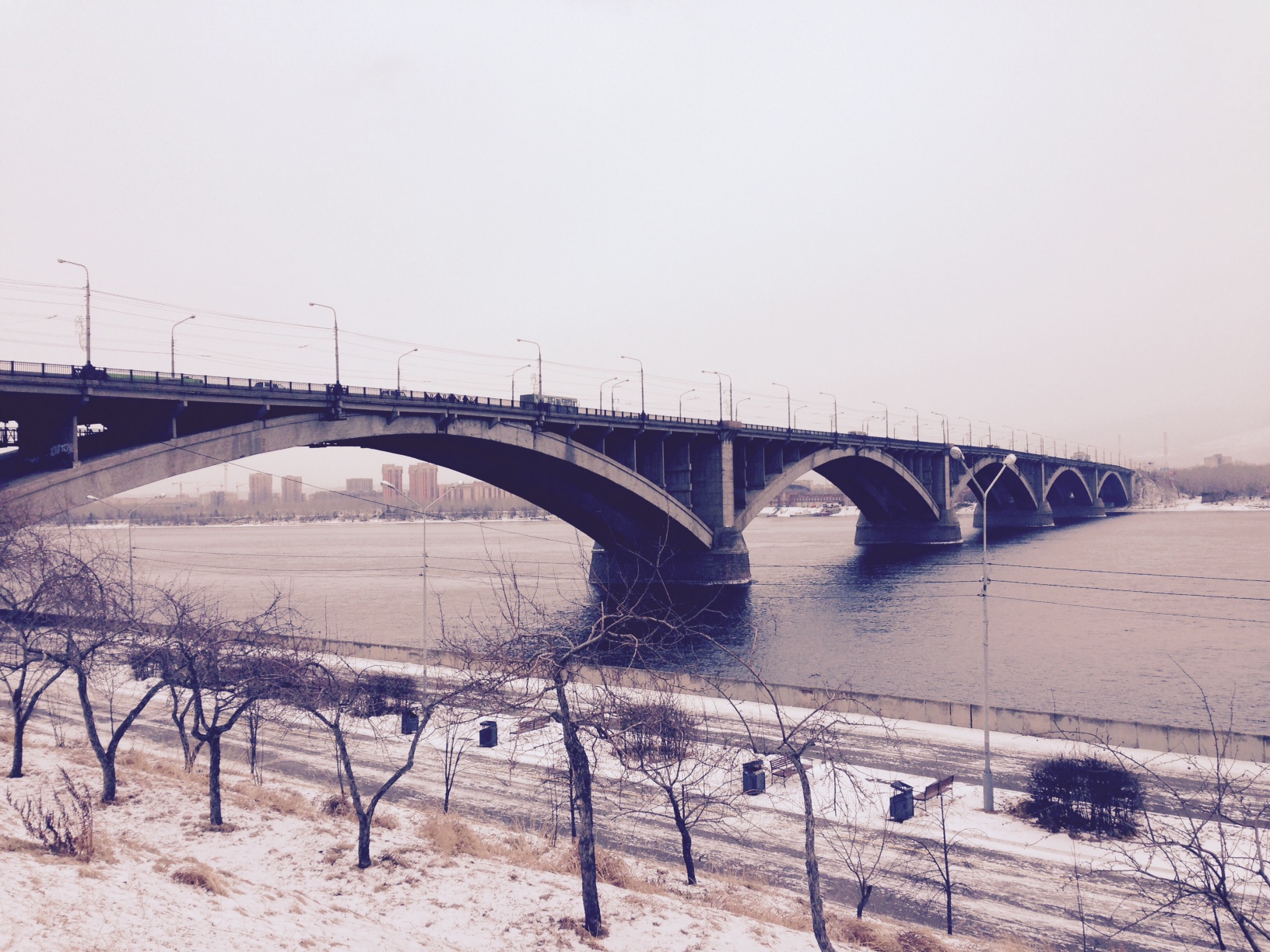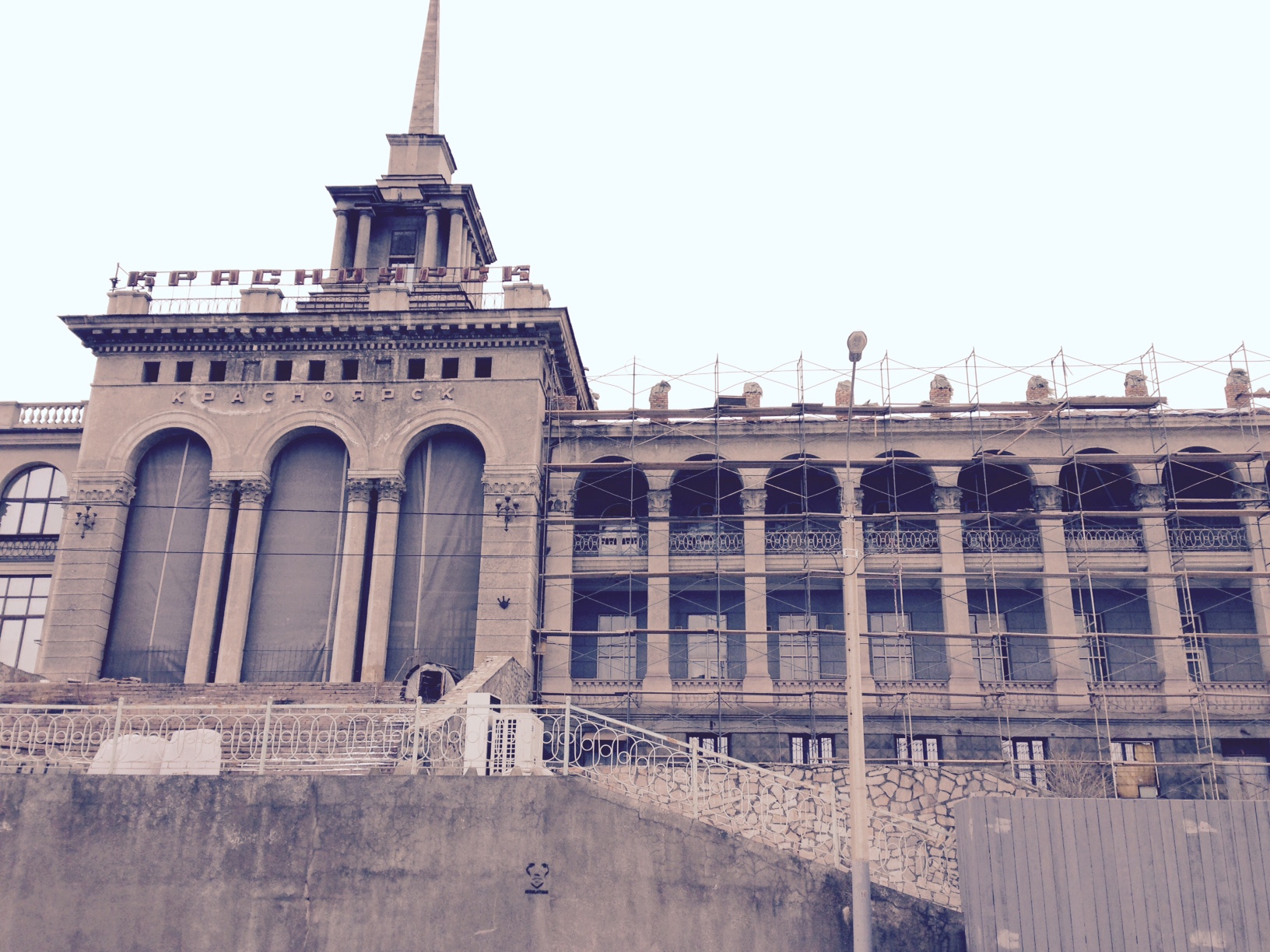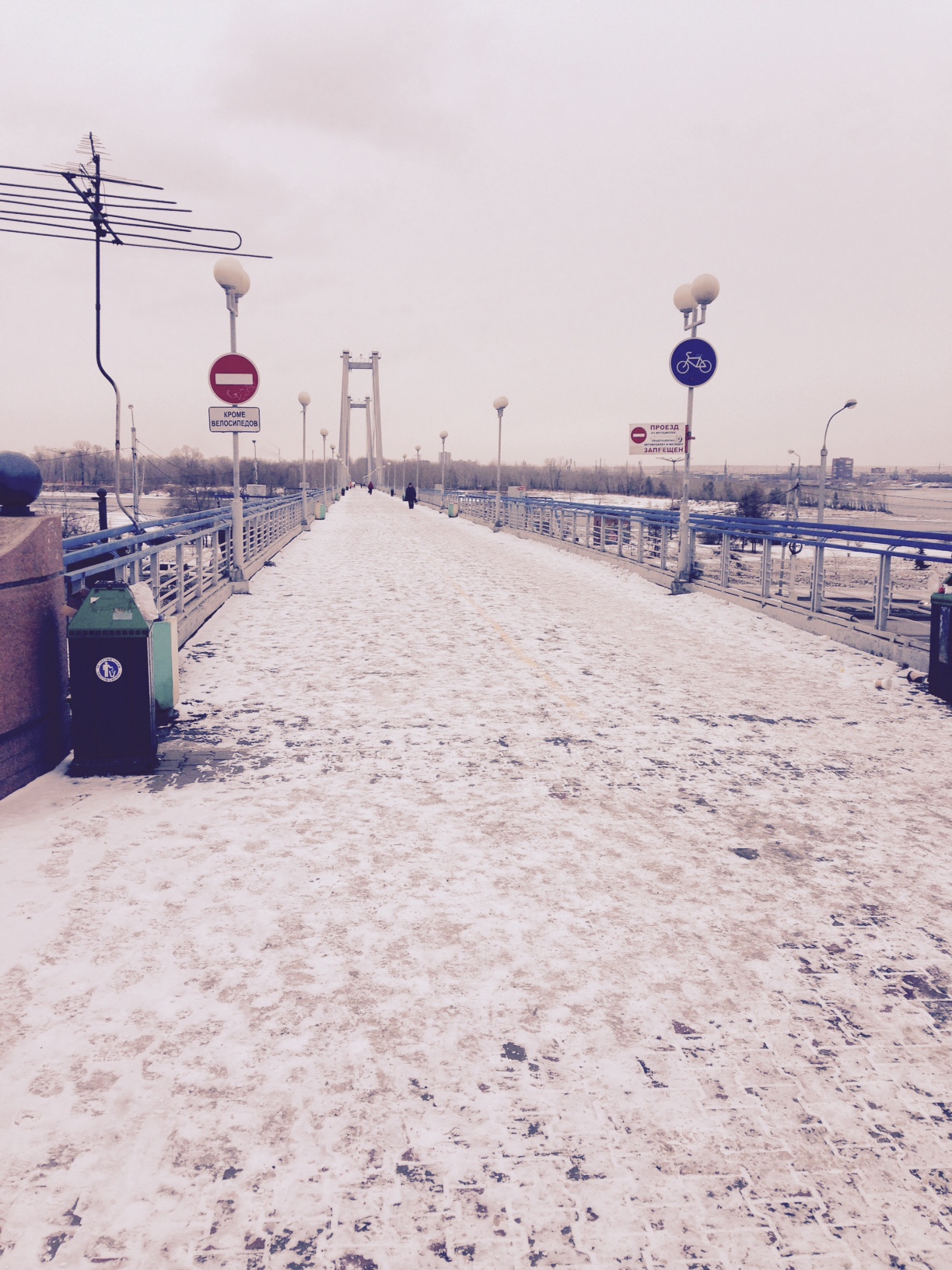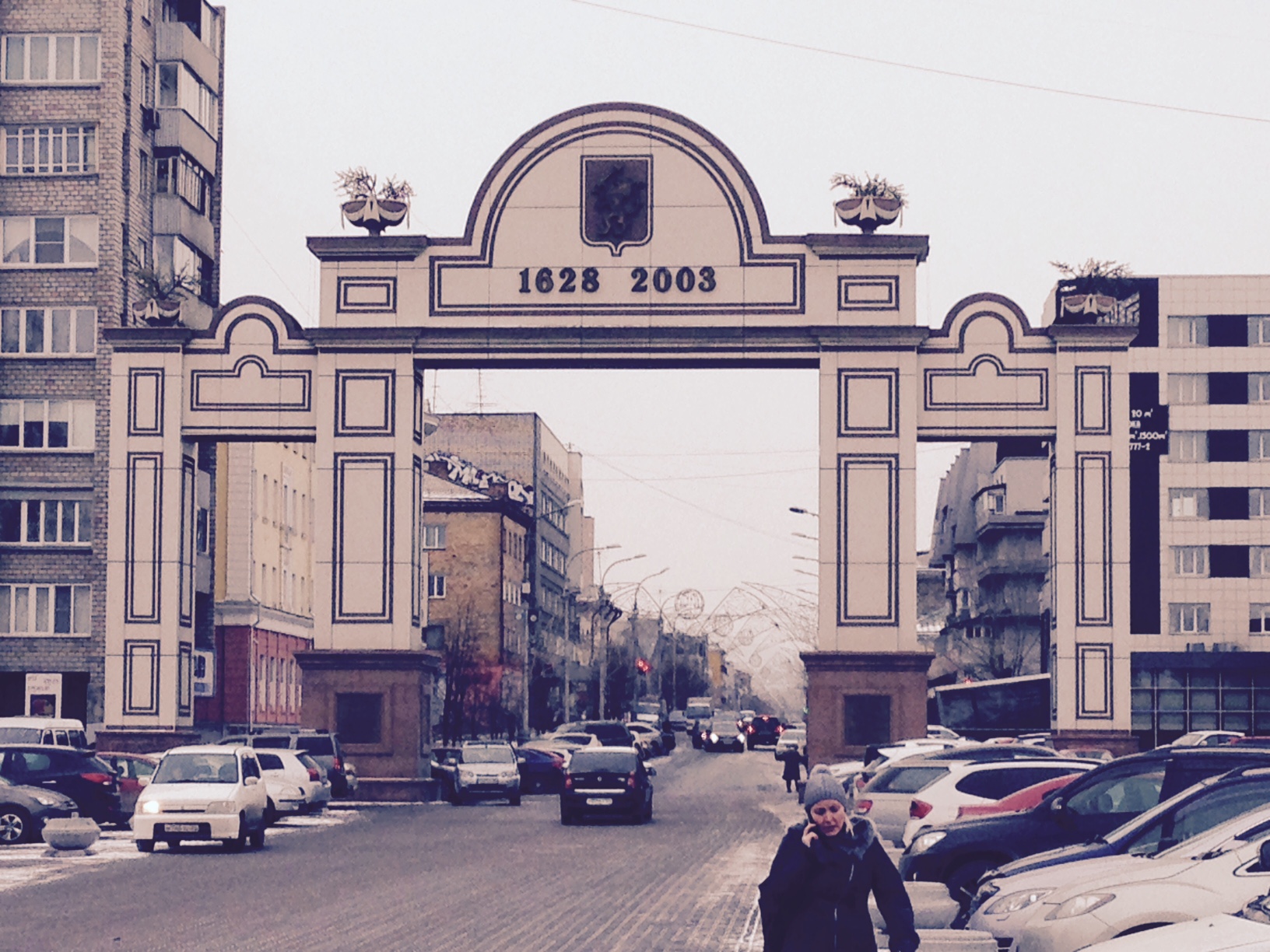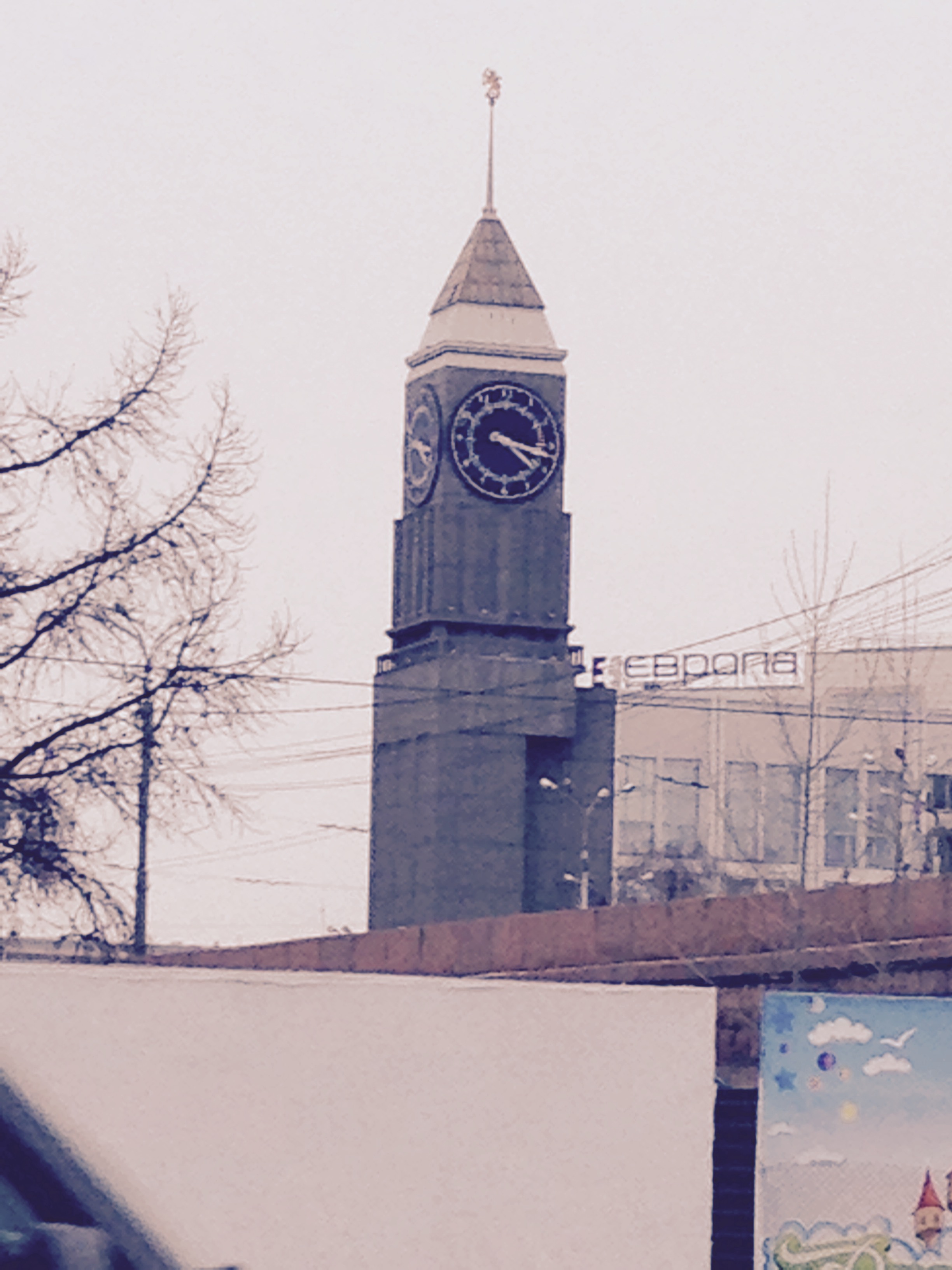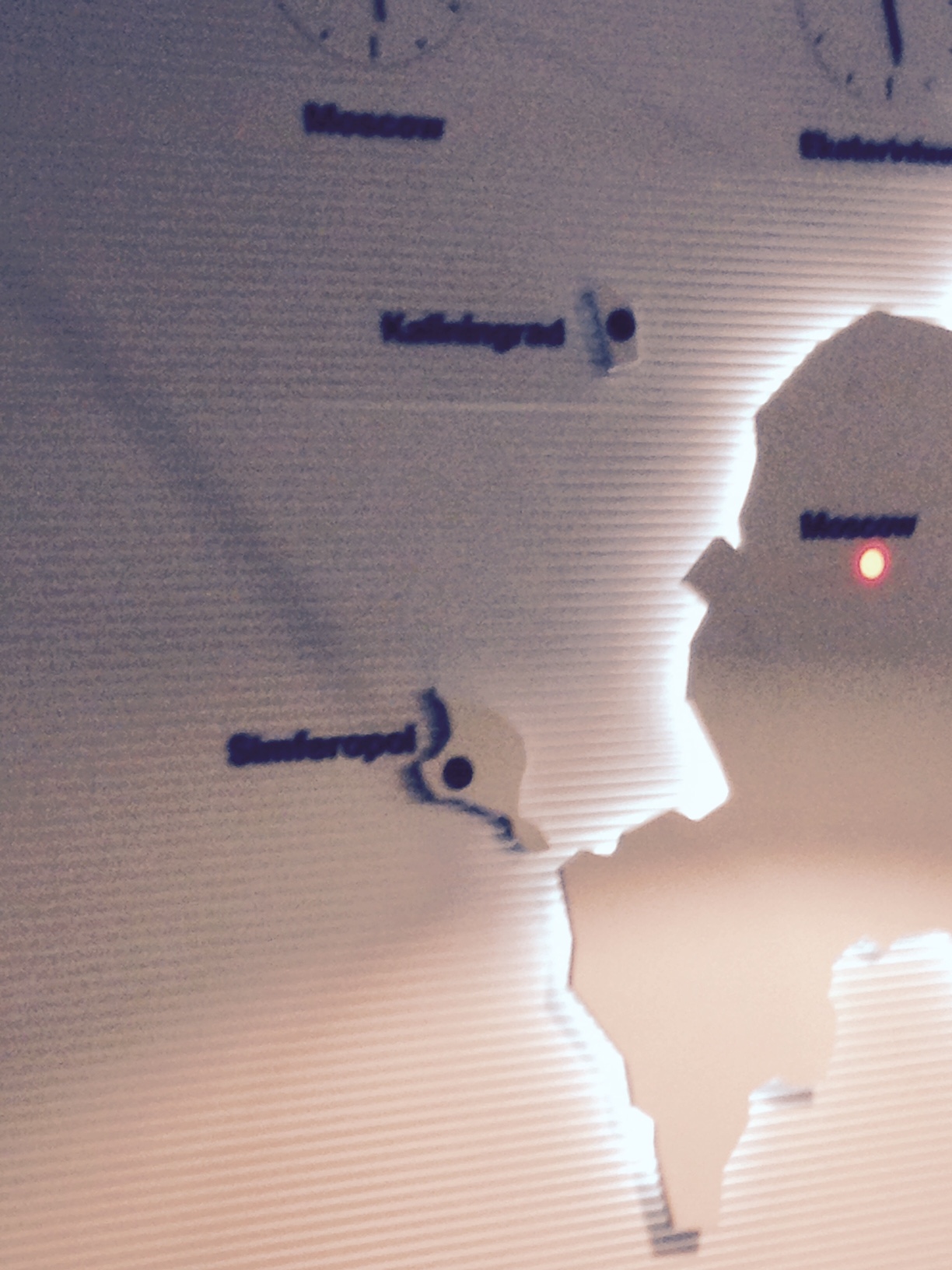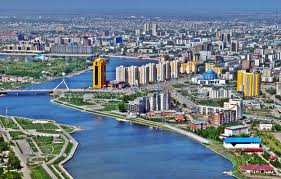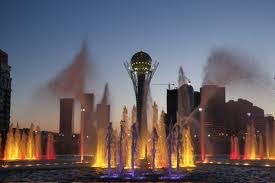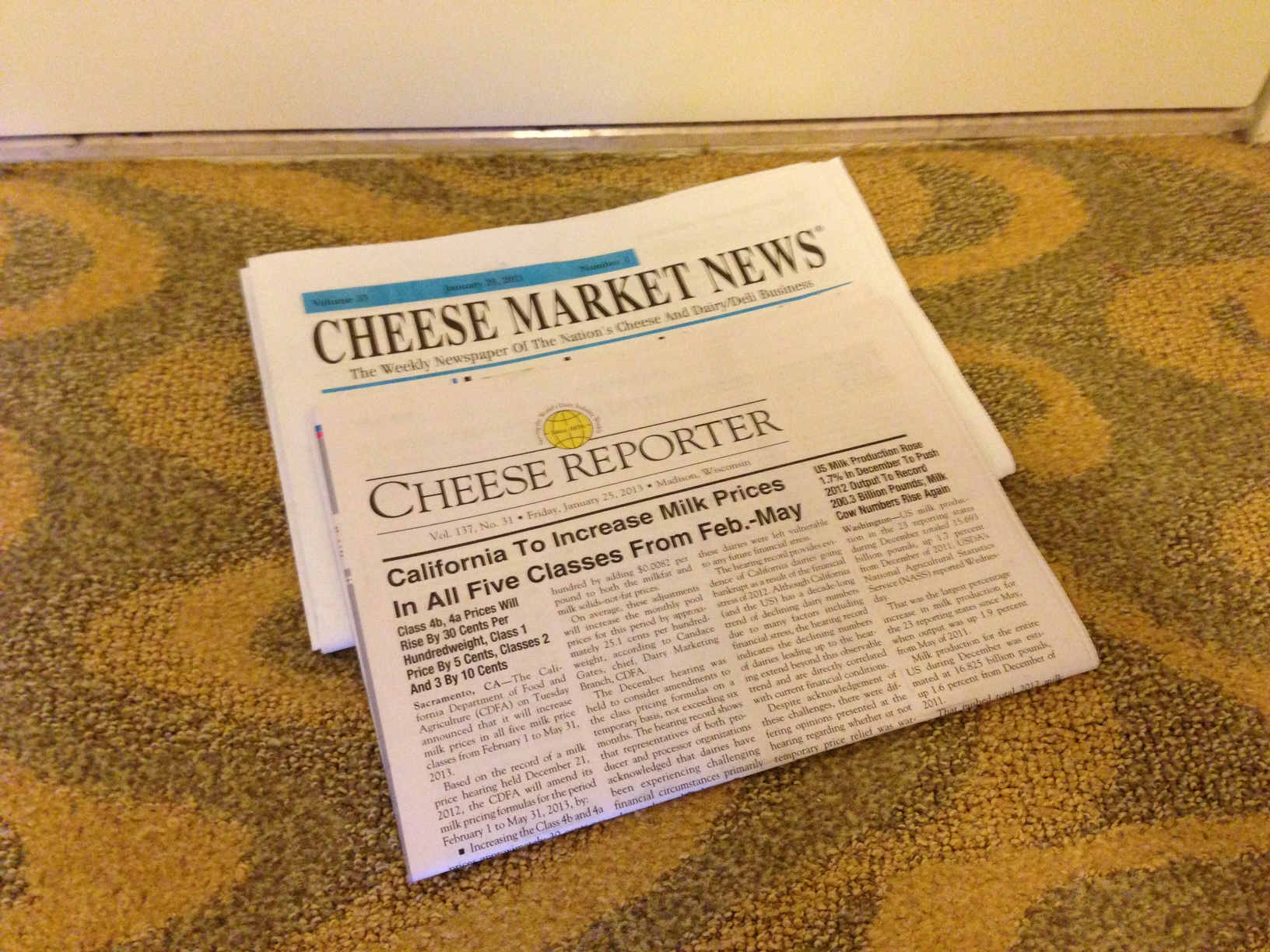On the way to town from Krasnoyarsk airport, I ask the lady from the foreign ministry about the only two buildings I plan to set foot in in this city in eastern Siberia: the hotel, and the conference centre.
‘Beautiful,’ she says.
‘Beautiful?’ I repeat. ‘Do you mean the hotel is beautiful, or the conference centre is beautiful?’
‘Everything is beautiful,’ she clarifies.
We enter the city and I am conscious of the sound of people eating breakfast cereal, loudly, outside the car window. The eating stops and starts again each time we stop and start at a traffic light. After a while I realise that this is in fact the sound of the little nails on the car tires that enable vehicles to have traction on ice.
Arriving at the hotel, the nice lady from the foreign ministry insists on helping me to take my luggage to the room. We enter. ‘Let me see how your view is,’ she says. She pulls aside a curtain and peaks out: ‘Very good.’
Later, I take a photograph that approximates to what she was looking at.
It is thus that I arrive for the XII Krasnoyarsk Economic Forum, of which the 2015 theme is Economic Integration with Asia (Mr Putin, you remember, having fallen out with everyone in Europe).
Since the organisers have invited many more people to speak than there is time for, I am asked to reduce my remarks to a maximum 15 minutes. That equates to about one minute for every thousand kilometres of round-trip travel, but still constitutes top billing. After the Plenary Session, there is a High Level Luncheon, to which very few people turn up. One of those who does speaks loudly into his mobile phone as I am asked to say a few more words.
I am not sure that I understood anything that was going on at the conference.
Possibly, people in business were intimating that the central government does not do much governing.
Fortunately, the bigger point turned out to be that there was time before I left for the foreign ministry lady to give me a tour of key Krasnoyarsk beauty spots.
Paramount among these is a hill with a very small, windmill-shaped church from which Krasnoyarskians enjoy panoramic views of their city.
We were at this Elysium on a Friday, which is one of the days (along with Thursday) when people like to get married, since it allows for the requisite three- or four- day weekend of drinking.
T
Descending to the city, we stopped at the bridge over the Yenisei (one of the Three Great Siberian Rivers, along with the Ob and the Lena), which is so famous that it appears on the 10-rouble note. (That equates, following the latest devaluation, to the 10 pence note.)
Not far from the bridge, the Soviet-era water pumping station is being restored for the benefit of future generations.
At the other end of town, the second-most famous beauty spot in Krasnoyarsk is another bridge. The foreign ministry lady told me that in the summer romantic couples stroll across it in droves.
You just have to try to imagine the droves.
Naturally enough, there was another wedding couple there.
Nearby is a triumphal arch erected in 2003 to celebrate the 375th anniversary of the city’s founding. (This appears to be the first anniversary to be architecturally commemorated.)
The arch will make French people think of Paris. As a British person, my favourite landmark is the iconic Krasnoyarsk time-piece known as Little Big Ben.
There is a train from Krasnoyarsk to Moscow. It takes three-and-a-half days.
I travelled by plane, which takes just five hours. To Moscow.
As I was leaving, I noted in the VIP lounge of Krasnoyarsk airport that management has been quick to amend the map on the wall to include Crimea and its administrative centre, Simferopol. I wondered whether the contractor has yet prepared a piece for the eastern Ukrainian (should I say Western Russian?) region of Donbass.
I hope you find these images of the best sights in Krasnoyarsk useful. Before my visit, Internet searches under terms such as ‘Krasnoyarsk best sights’ failed to elicit anything.
